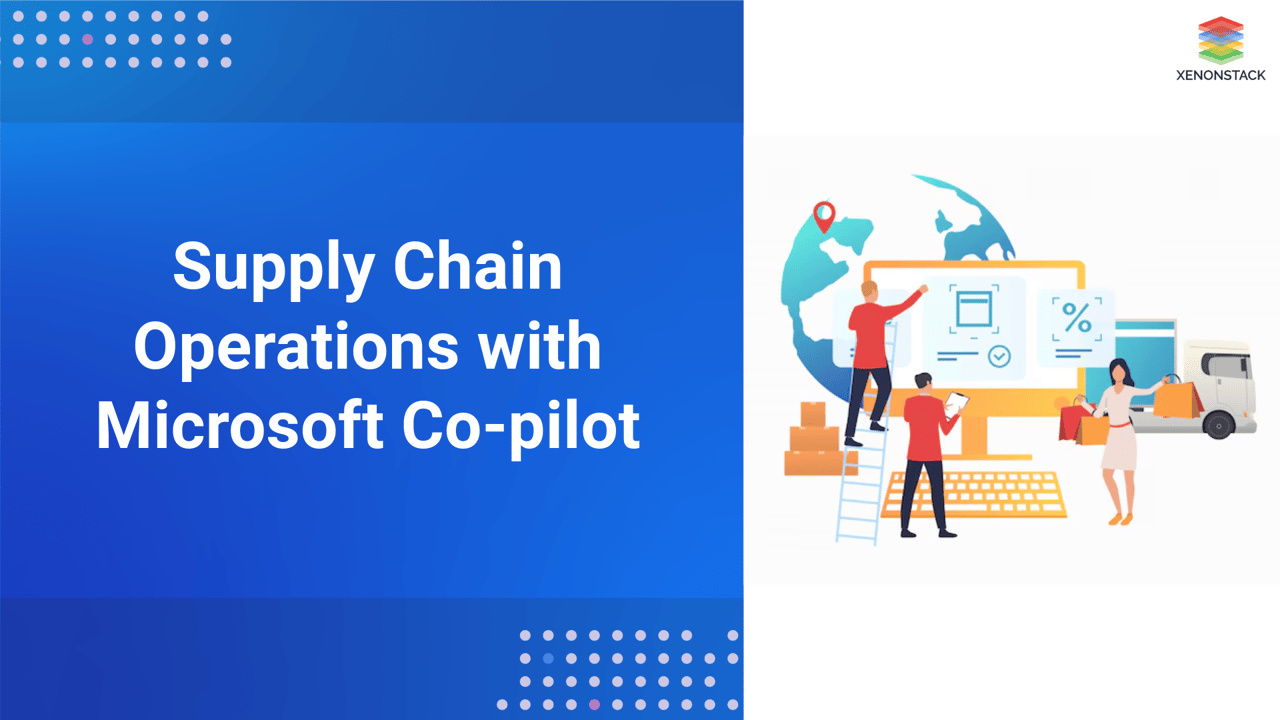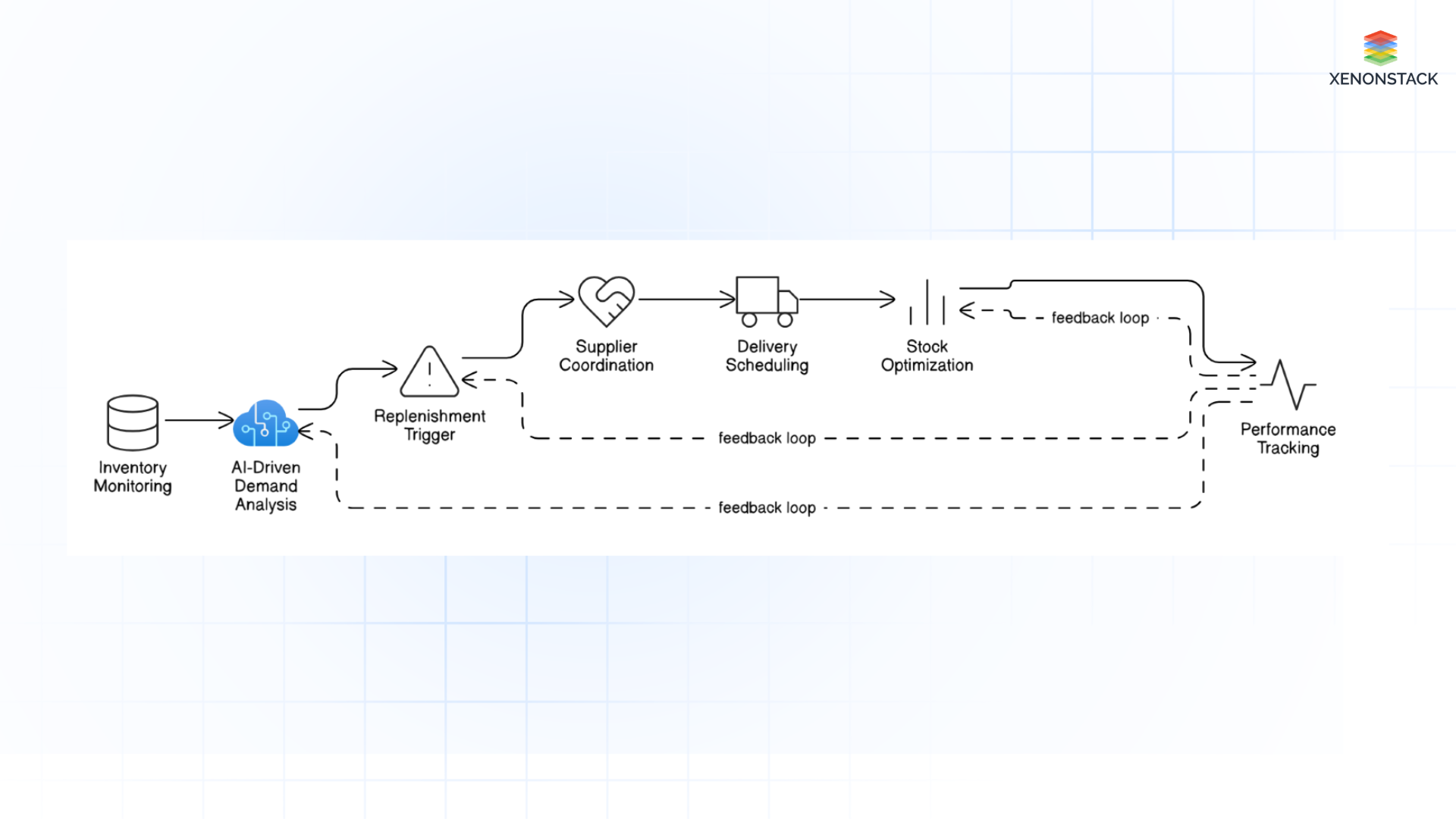
The contemporary supply chain ecosystem is increasingly characterized by complexity, volatility, and the need for real-time adaptability. The rapid integration of artificial intelligence (AI), automation, and advanced analytics has redefined conventional supply chain paradigms. Enterprises are progressively leveraging these technologies to enhance operational efficiency, mitigate risks, and improve strategic agility.
Microsoft Copilot, an AI-augmented assistant embedded within Microsoft 365 and the broader Microsoft enterprise suite, transforms supply chain management by facilitating data-driven decision-making, automating routine processes, and enhancing stakeholder collaboration.
This discourse critically examines Microsoft Copilot's role in optimizing supply chain operations, assessing its technological capabilities, strategic benefits, practical applications, and synergies within Microsoft's digital infrastructure. Additionally, this discussion explores how Copilot is shaping the future of AI-driven supply chain optimization, the evolving role of intelligent automation, and emerging trends in predictive supply chain analytics.
The Technological Imperative: AI-Powered Supply Chain Optimization
Microsoft Copilot employs state-of-the-art AI methodologies, including natural language processing (NLP), machine learning (ML), and predictive analytics, to extract actionable insights, automate labour-intensive functions, and refine strategic decision-making. Its key functionalities in supply chain management include:
-
Advanced Demand Forecasting – Utilizing AI-enhanced models to anticipate market-driven demand fluctuations rapidly.
-
Intelligent Inventory Optimization – Applying data analytics to regulate stock levels in response to predictive demand insights dynamically.
-
Supplier Relationship Management (SRM) Enhancement – Automating and streamlining supplier interactions, contract negotiations, and performance evaluations.
-
End-to-End Order Processing Automation – Intelligent process automation enhances procurement, invoicing, and fulfilment workflows.
-
Comprehensive Data-Driven Analytics – Generating real-time, actionable insights via AI-driven dashboards and reporting tools.
-
Cognitive Supply Chain Intelligence – Enabling AI-assisted recommendations based on real-time and historical data, improving supply chain agility and resilience.
Strategic Advantages of Microsoft Copilot in Supply Chain Management
1. Enhanced Predictive Decision-Making
By leveraging AI-driven analytics, Copilot empowers supply chain executives with real-time, data-backed intelligence, facilitating proactive decision-making while reducing dependence on traditional, reactive supply chain models.
2. Process Automation and Operational Efficiency
Automating essential supply chain functions—including inventory tracking, order processing, and compliance monitoring—reduces human error, streamlines operations, and reallocates human capital to higher-order strategic tasks.
3. Optimized Supplier and Vendor Collaboration
Copilot fosters seamless supplier engagement by summarizing contractual communications, generating AI-informed negotiation insights, and enhancing the efficiency of supplier performance evaluations. It facilitates automated contract renewals and compliance tracking, ensuring seamless vendor interactions.
4. Risk Management and Disruption Mitigation
Through predictive analytics, Copilot enables organizations to anticipate and preemptively respond to potential supply chain disruptions—ranging from geopolitical instability to logistical bottlenecks—thereby strengthening resilience. Advanced risk modelling allows firms to create contingency plans for unexpected disruptions and assess potential financial implications in real time.
5. Cost Reduction and Strategic Resource Allocation
The AI-driven optimization of supply chain processes reduces inefficiencies, optimizes asset utilization, and enhances profitability by minimizing unnecessary expenditures and operational redundancies. Additionally, Copilot’s ability to analyze procurement trends and supplier costs allows organizations to negotiate better contracts and reduce long-term expenses.
 Fig 1: AI-Driven Demand Forecasting Workflow
Fig 1: AI-Driven Demand Forecasting Workflow Empirical Applications of Microsoft Copilot in Supply Chain Management
1. AI-Enhanced Demand Forecasting and Inventory Optimization
Challenge: Conventional demand forecasting models often fail to capture real-time market volatility, leading to supply-demand imbalances and operational inefficiencies.
Solution: Copilot employs advanced ML algorithms to analyze historical sales patterns, external economic indicators, and real-time consumer behaviour data, ensuring precise demand forecasting and optimal inventory regulation. Dynamic inventory balancing helps businesses avoid overstocking or understocking scenarios, minimizing financial losses.
 Fig 2: Automated Inventory Replenishment Workflow
Fig 2: Automated Inventory Replenishment Workflow2. Autonomous Procurement and Supplier Relationship Management
Challenge: Legacy procurement methodologies are often hindered by inefficiencies, miscommunication, and suboptimal supplier selection processes.
Solution: Copilot streamlines procurement workflows, conducts AI-driven supplier performance assessments, and automates comparative analysis of vendor agreements, optimizing procurement strategies. Additionally, it provides insights into supplier risk factors, compliance adherence, and long-term vendor reliability.
3. Intelligent Order Processing and Fulfillment Optimization
Challenge: Delays in order validation, invoice generation, and logistics tracking contribute to inefficiencies and diminished customer satisfaction.
Solution: Copilot automates end-to-end order processing, integrates with logistics systems for real-time shipment tracking, and ensures seamless order fulfilment through predictive fulfilment scheduling. AI-powered exception handling also quickly resolves errors, such as incorrect order entries or shipping delays.
4. Logistics and Transportation Optimization via AI
Challenge: Suboptimal route planning increases transit costs, disrupts delivery timelines, and inflates operational expenditures.
Solution: Copilot dynamically analyzes traffic data, weather forecasts, and transportation logistics to recommend the most efficient delivery routes, optimizing fleet operations and ensuring adherence to delivery commitments. Moreover, AI-driven simulations assess alternative shipping methods, allowing organizations to evaluate cost-effective transportation strategies.
5. AI-Powered Supplier Risk Assessment and Compliance Oversight
Challenge: Organizations face increasing complexity in supplier risk management, regulatory compliance tracking, and adherence to dynamic governance requirements.
Solution: Copilot continuously monitors supplier data streams, regulatory frameworks, and financial stability metrics to identify risks, proactively ensuring compliance and supplier integrity. It also provides real-time alerts for supply chain vulnerabilities, allowing companies to implement corrective measures proactively.
Integration with Microsoft’s Intelligent Enterprise Ecosystem
Microsoft Dynamics 365 Supply Chain Management Integration
Copilot augments Dynamics 365 by embedding AI-driven automation, predictive analytics, and intelligent workflow management into enterprise supply chain operations. It also facilitates seamless integration with third-party supply chain platforms for enhanced interoperability.
Power BI for Advanced Data Visualization and Business Intelligence
By integrating with Power BI, Copilot enhances supply chain analytics through real-time data visualization, enabling executives to derive actionable intelligence from complex datasets. Advanced scenario analysis allows users to explore various supply chain models under different economic conditions.
Microsoft Teams and Outlook for AI-Optimized Communication
Copilot enhances enterprise communication by intelligently summarizing email correspondences, drafting AI-powered responses, and automating supply chain meeting coordination. Additionally, AI-driven sentiment analysis provides insights into supplier and customer communications, improving relationship management.
Azure AI and IoT for Predictive Supply Chain Monitoring
Copilot’s integration with Azure AI and IoT facilitates real-time warehouse inventory tracking, environmental conditions, and transportation logistics, mitigating operational risks and enhancing system-wide efficiency. IoT-enabled smart sensors allow businesses to maintain temperature-sensitive goods under optimal conditions.
The Future Trajectory of AI in Supply Chain Management
Microsoft Copilot is poised to drive the next generation of supply chain innovations as AI and autonomous systems evolve. Anticipated advancements include:
AI-Driven Autonomous Supply Chain Decision-Making – Leveraging advanced reinforcement learning algorithms to optimize supply chain processes autonomously.
Blockchain-Integrated IoT Solutions – Enhancing supply chain transparency and traceability through AI-blockchain convergence.
AI-Powered Conversational Interfaces – Advancing NLP capabilities to facilitate more intuitive, voice-command-driven AI interactions.
Industry-Specific AI Adaptation – Tailoring Copilot’s AI capabilities to address sector-specific supply chain challenges, from pharmaceuticals to high-tech manufacturing.
Conclusion of Supply Chain Operations with Microsoft Co-pilot
Microsoft Copilot is redefining AI-driven supply chain management, fostering automation, precision analytics, and enterprise-wide efficiency. As businesses navigate an increasingly complex global market, integrating Copilot into their digital ecosystem ensures a competitive advantage in future-proofing their supply chain strategies.
Next Steps with Microsoft Co-pilot
Talk to our experts about implementing compound AI system, How Industries and different departments use Agentic Workflows and Decision Intelligence to Become Decision Centric. Utilizes AI to automate and optimize IT support and operations, improving efficiency and responsiveness.


